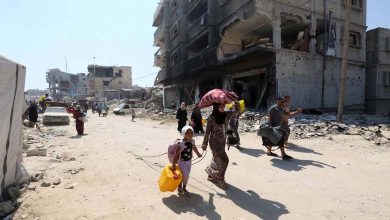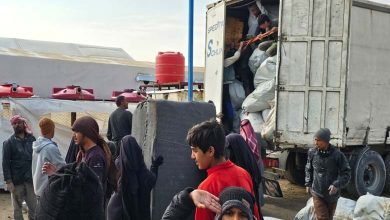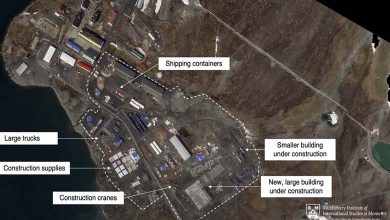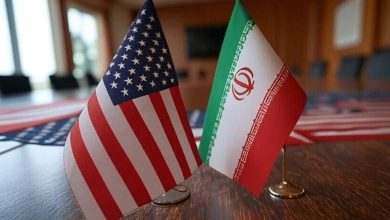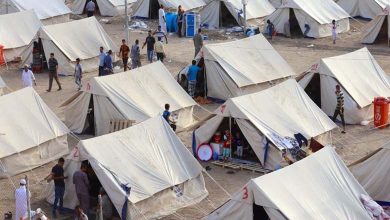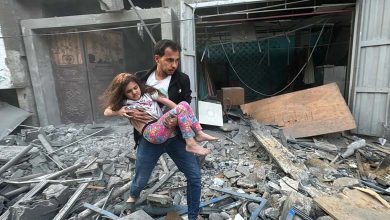Intense Cyber War Between Israel and Iran
The Hebrew state is working on developing a cyber dome to counter Iranian cyber attacks, which have escalated recently due to Russian and Chinese support

A “silent” war is raging between Israel and Iran in cyberspace, where the Hebrew state seeks to thwart Iranian attacks while the risk of military escalation appears to be ruled out for the time being.
Between the two enemy states, there is a “silent war away from the spotlight,” according to Aviram Atzaba, responsible for international cooperation at the Israeli National Cyber Security Directorate. This entity, located in an upscale neighborhood in northern Tel Aviv and under the authority of the Prime Minister, is tasked with defending the information systems of the Israeli civilian sector, according to Atzaba.
Since the outbreak of the war between Israel and Hamas on October 7, there has been a significant increase in attacks from Iran and its “proxies” in the region, according to Aviram Atzaba, especially the Lebanese Hezbollah and Hamas.
“They try to hack everything they can without actually being able to cause real damage,” he confirmed. The official revealed having thwarted 800 widespread attacks since October 7.
These attacks targeted, among other things, government organizations, the Israeli army, and civilian facilities.
The information systems of two Israeli hospitals in Haifa and Safed in the north were hacked, and personal data of patients was leaked.
Iran’s investments in the “cyber” field are relatively late and driven by two major events, as explained by Professor Chuck Freilich, a researcher at the Israeli Institute for National Security Studies, in his study titled “The Iranian Cyber Threat” released in February. During the protests against the results of the 2009 presidential elections in Iran, the Internet became a means of rallying and maximizing impact. The authorities violently suppressed this protest movement in the streets and also blocked access to social networks and sites that contributed to the expansion of the protests.
In September 2010, the Iranian nuclear program was subjected to a highly sophisticated cyber attack using the “Stuxnet” virus, attributed by Tehran to Israel and the United States, causing a series of malfunctions in uranium enrichment centrifuges.
Since then, Iran has developed an effective cyber strategy and honed its skills in this field, “becoming one of the most active countries in this field,” according to Professor Freilich.
He emphasized that “its attacks aim to undermine and destroy facilities, as well as collect intelligence and disseminate false information for propaganda purposes,” confirming that the Islamic Republic is very effective in media disinformation.
In contrast, Israel is a major “cyber power” to which several powerful attacks on Iranian targets have been attributed, such as the information disruption that suddenly paralyzed operations at the port of Bandar Abbas in 2020.
However, Israel faces a “formidable adversary on the other side” that will continue to enhance its capabilities, especially with Russian and Chinese support, according to Freilich.
The researcher pointed out that Iran’s population is nine times larger than Israel’s, and Tehran seeks to specialize more students in cyber technology and train a larger number of young soldiers in cyber warfare strategies, which is “a source of concern for the future.”
However, Aviram Atzaba believed that quality is more important than quantity for information hackers, as well as ways to use technology.
He said, “For the past two years, we have been developing a cyber dome to counter cyber attacks, which works like the Iron Dome against missiles,” presenting a “proactive” defense system capable of collecting scattered information to provide an overview of the threat and combat it in a coordinated and comprehensive manner.
Atzaba revealed that “scanners continuously analyze the Israeli cyberspace to identify vulnerabilities and inform cyber defense entities about ways to mitigate them continuously,” adding that “some features of the cyber dome are being deployed.”
Aviram Atzaba also believed that Israel’s strength lies in cooperation between different entities, from government and security institutions to private companies, technology and security groups, universities, and research institutes, as well as some Israeli hackers.
He stated, “We work hand in hand,” adding, “We also cooperate closely with several countries,” including the United States and France, “because all countries face the danger of cyber terrorism.” Atzaba stressed, “It is essential to establish a network to counter another network.”



